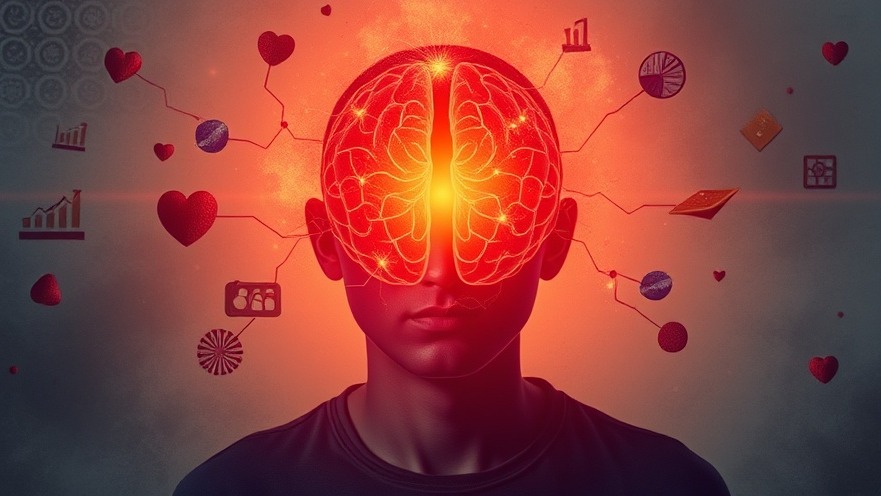
The Importance of Mental Wellness for Middle-Aged and Seniors
Mental health is often overlooked, especially among middle-aged and senior individuals. However, understanding and prioritizing mental wellness is crucial as it significantly impacts overall health, quality of life, and the ability to manage aging challenges. This article explores various techniques, natural remedies, and actionable tips that can enhance mental health, alleviate anxiety, and improve sleep quality.
In LIVE: continued, we delve into the vital topic of mental health, exploring insights that prompted a deeper analysis of strategies beneficial for seniors.
Understanding Mental Health Challenges
As we age, mental health issues such as depression, anxiety, and insomnia can become more prevalent. Various factors, including health changes, loss of loved ones, and social isolation, can contribute to these challenges. It is vital to recognize these issues and understand that seeking help is a sign of strength, not weakness. By adopting effective mental health techniques and routines, individuals can significantly improve their well-being.
Holistic Approaches: Natural Remedies and Supplements
Incorporating natural remedies and supplements into daily routines can be a powerful means to boost mental health. Herbs such as St. John's Wort can help alleviate mild depression, while omega-3 fatty acids found in fish oil are known for supporting brain health. It's also beneficial to explore natural supplements specifically designed for seniors, as they can address particular age-related concerns while promoting general mental wellness.
Mindfulness and Meditation: Techniques for All
Practicing mindfulness and meditation is an excellent way to enhance mental clarity and reduce stress. Techniques such as focused breathing, guided visualization, and body scans are particularly beneficial for seniors, providing easy, low-impact methods to center the mind and stimulate relaxation. Regular meditation not only improves mental health but also plays a role in enhancing sleep routines by calming the mind before bedtime, thus addressing sleep issues more effectively.
Physical Exercise and Mental Wellness
Engaging in physical exercises has proven benefits for mental health. Activities like walking, yoga, and tai chi not only improve physical fitness but also reduce symptoms of anxiety and depression. Furthermore, structured exercises can promote better sleep habits and aid in stress relief, making it easier for individuals to navigate day-to-day challenges. Emphasizing a routine that combines both mental and physical activities can foster resilience and a sense of accomplishment, which is particularly important during later life stages.
Sleep: The Cornerstone of Mental Health
Quality sleep is foundational for proper mental health. Seniors often experience disruptions in sleep patterns, leading to insomnia or restless nights. Implementing sleep hygiene techniques—such as maintaining a consistent sleep schedule, creating a sleep-friendly environment, and limiting screen time before bed—are simple yet effective strategies to enhance sleep quality. Additionally, natural sleep remedies like melatonin or chamomile tea can offer calming support, making the transition to sleep smoother.
Creating a Relaxation Routine for Better Mental Health
Regular relaxation is critical for reducing stress and promoting emotional well-being. Individuals can develop a personal relaxation routine that includes activities such as deep breathing exercises, progressive muscle relaxation, or soothing music. One effective technique is to set aside a few moments each day for breathing exercises, which can help ground the mind in the present and alleviate anxiety, making a significant difference in overall mental wellness.
Building Mental Health Habits: Daily Practices for Longevity
Establishing daily mental health habits fosters resilience and enhances emotional stability. Simple practices such as journaling, engaging in creative activities, or spending time in nature can enrich mental health. For those who might be skeptical, consider the plethora of studies suggesting that these activities promote happiness and a sense of connection, which are critical in combating feelings of loneliness and depression.
Conclusion: Empowering Seniors Through Awareness
In summary, understanding the significance of mental health, particularly among seniors, is crucial for healthy aging. This includes adopting techniques such as mindfulness, natural remedies, and regular exercise that contribute to overall well-being. By enhancing awareness and implementing these practices, we empower individuals to take control of their mental health and enjoy a higher quality of life.
 Add Element
Add Element  Add Row
Add Row 




Write A Comment